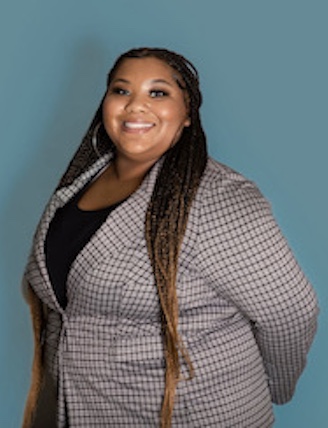14 questions to ask a mortgage lender
Contributed by Sarah Henseler, Tom McLean
Nov 20, 2025
•10-minute read

If you’re a first-time home buyer, you might be wondering what questions you should ask when talking to a mortgage lender. We’ve gathered 14 essential ones to get you started so you can rest easy knowing you’re prepared for the road ahead.
1. How much will my mortgage cost?
As a home buyer, one of the first things you need to think about is your budget. Knowing how much home you can afford can help you narrow your home search and keep your expectations realistic. Your mortgage lender will help by reviewing your income, assets, and credit.
After analyzing your finances, your mortgage lender will estimate your monthly payment. You’ll learn about the interest rate you’ll pay, closing costs, and property taxes. Furthermore, your mortgage lender will help you figure out how much of a down payment you’ll need.
If you’re looking for an easy way to find out for yourself, check out the Rocket Mortgage® mortgage calculator. It will help you estimate how much house you can afford by determining your monthly payments. The more you play around with the mortgage calculator, the better your understanding of your budget will be.
2. Which mortgage terms are right for me?
There isn’t a single type of mortgage loan that’s right for everyone. Ask your mortgage lender about the following types of loans:
Conventional fixed-rate mortgages
A 30-year conventional fixed-rate loan is the most common type of mortgage. Since the term is so long, monthly payments are lower, and the fact that rates are fixed means that your interest rate will remain the same throughout the life of the loan. However, the longer the term of your mortgage the more interest you’ll pay on the loan. So, if you can afford higher monthly payments, it may be worth choosing a 15- or 20-year term.
Adjustable-rate mortgages
Unlike fixed-rate mortgages, the interest rates of ARMs change over the life of the loan. If you choose an adjustable-rate mortgage, your interest rate will increase or decrease as the market fluctuates after the fixed period expires.
This means that your mortgage payments will adjust from time to time, which can make budgeting a challenge. The good news is that there are caps on this loan type, which limit the extent your interest rate and monthly payment can increase periodically and over the life of the loan.
FHA loans
Borrowers who have lower credit scores, incomes, and savings are more likely to qualify for Federal Housing Administration mortgages. FHA loans have lower credit score minimums and down payment requirements than most conventional loans. Compared to conventional loans, FHAs have tighter restrictions such as how much you can borrow, and mortgage insurance may be required.
VA loans
VA loans are backed by the U.S. Department of Veterans Affairs (VA) for veterans, military personnel, and eligible surviving spouses. VA loans tend to have lower interest rates and don’t require down payments. However, there are some restrictions and fees involved. Those eligible should expect to pay funding fees and have reserve funds available.
3. What are your credit requirements?
A credit score is a three-digit number that indicates to lenders how likely you are to pay back the money you borrow. The higher your credit score, the easier it is to get a mortgage loan. However, you can find ways to buy a home if you have bad credit – you may have to pay more for your loan.
Each lender sets its own standards for what they consider an acceptable credit score. You must ask your mortgage lender about credit qualifications early in the process. If you have a good credit score, you can ask your lender if you qualify for any special offers or lower interest rates.
4. Do you offer mortgage points?
Mortgage points, sometimes called discount points, are an optional fee that you can pay at closing to reduce your interest rate and save on the overall cost of the loan. The cost of each mortgage point is equal to 1% of your total loan. Be sure to ask your lender when it makes sense to buy mortgage points, how much each point will lower your interest rate, and what the maximum number of points you can buy is.
For example, if you take out a $150,000 loan, you may have the option to buy mortgage points for $1,500 each at closing. Mortgage points are beneficial for home buyers who plan on living in their home for a long time because they can save tens of thousands of dollars over their loan term.
5. Do I need an escrow account?
An escrow account holds money for prepaid property taxes and insurance premiums and can be opened at any time, but most people start one during closing. Escrow accounts are often required for government-backed loans and optional for conventional loans.
Ask your lender if you need an escrow account. If you’re required to have one, ask what options you have for paying for shortages and whether you can get a refund if you overpay. Make sure you also find out how much money you’ll need to hold in escrow.
6. What is the interest rate and APR?
It’s essential that you ask your mortgage lender about your mortgage’s interest rate. Your interest rate is determined by multiple factors, including your credit score, the location of the home you purchase, the size of your down payment, and your loan type, along with the loan’s term and amount.
However, you should ask your mortgage lender about the annual percentage rate, because it provides insight into the full cost of borrowing money. The APR includes the interest rate and the fees that the lender charges to originate the loan.
If you’re planning to obtain an adjustable-rate mortgage, it’s helpful to ask your mortgage lender about the adjustment frequency. The frequency will tell you when to expect interest rate changes that will impact your monthly payment and the overall cost of the loan.
7. Do you offer a mortgage rate lock?
A mortgage rate lock is an agreement between you and your lender that says your interest rate will stay the same until closing, regardless of market movements. Rate locks keep your loan costs predictable. When you get a rate lock, you don’t have to stress about finding a home immediately, because you know that your interest rate won’t increase while you're searching for a home.
Ask your lender about rate locks and how long they’re valid. Also, find out about current market rates to determine whether you should lock your rate. Some lenders will drop your interest rate if market rates decrease after you lock your rate, so be sure to check with your mortgage lender.
8. Is it possible to buy a house without my spouse?
Buying a home without your spouse is possible, but it’s not as easy as leaving your partner off the loan application. If you live in a state with a community property statute, you must share ownership of any assets you gain during your marriage with your spouse.
Ask your lender if it’s possible to buy a home without your spouse; your lender should know whether you live in a community property state or a common-law state. If you live in a common-law state, you can leave your partner’s finances off the paperwork when you buy a home. However, certain types of government loans require your lender to consider your partner’s debt and income when you apply for a loan, even in common-law states.
9. Which types of mortgages do you offer?
There are two major categories of mortgage loans: conventional loans and government-backed loans.
- Conventional loans are open to anyone, and lenders can set their own standards when it comes to down payment and credit score requirements.
- Government-backed loans have lower down payment and credit requirements. They’re insured by the federal government, which means that if you have trouble keeping up with your monthly payments, the government will help you to try to prevent foreclosure. However, you need to meet certain standards to qualify for government-backed loans.
10. Are there income requirements for buying a house?
There is no set dollar amount of income you need to have to buy a home. However, your income does play a significant role in how much home you can afford. Lenders look at your sources of income when they consider you for a loan, including commissions, military benefits, child support, and more.
Ask your lender how much income you need to buy a home and which streams of income they consider when they calculate your total earning power. Finally, ask your lender what documents you need to give them to prove your income, such as W-2s, pay stubs, bank account information, and other materials.
11. Do you offer preapproval or prequalification?
Preapproval and prequalification are two processes that are often confused with each other. Let’s break each down:
- Prequalification. During a prequalification, a lender asks you questions about your income, credit score, and assets to give you an estimate of how large of a loan you can get. However, they don’t verify any of this information, which means that the number you get during prequalification can easily change if you report incorrect information.
- Preapproval. During a preapproval, your lender verifies your income, assets, and credit information by requesting official documents, including your W-2s, bank statements, and tax returns. This allows your lender to give you an accurate mortgage loan figure.
Ask your lender which one is right for you. The answer will change depending on how serious you are about buying a home at the time you apply.
12. What’s the down payment needed to buy a house?
The often-quoted 20% figure has to do with avoiding private mortgage insurance, which protects your lender if you default on your loan. You can cancel your PMI on a conventional loan as soon as you build 20% equity in your home, and your lender will automatically cancel PMI as soon as you reach 22% equity in your home.
Check with your lender to find out about how much of a down payment you need to have at closing. Ask about government-backed loans and whether you qualify for a 0% down loan. Finally, ask about PMI requirements and when you can cancel PMI if you’re required to have it.
13. What will closing costs be?
Closing costs are processing fees you pay to your lender to close out your loan. Some typical closing costs include appraisal fees, origination fees, attorney fees, and title insurance. The specific closing costs you’ll pay depend on where you live, your down payment, and the size of your property. Closing costs will usually run 3% – 6% of the total value of your loan.
Ask your lender about the average closing costs in your state. Also, ask what fees and inspections are required by law, which are optional, and which services you can choose for yourself.
14. Is there a prepayment penalty?
You may find yourself in a position to pay off your mortgage early. If you can swing it, this can save you thousands of dollars in interest. However, not all mortgage lenders allow clients to do so. If they do allow you to pay off your loan faster, you should ask whether there are any prepayment penalties. Mortgage lenders charge these fees to dissuade borrowers from making extra payments on their loans, refinancing their loans at a lower rate, or selling their home before the loan is due.
Prepayment penalties enable mortgage lenders to recoup some of the money that they would have made off your loan had you continued to make monthly payments through the end of your loan term. There are different types of prepayment penalties: soft and hard.
- Soft prepayment penalty: Borrowers can sell their homes without being penalized but are charged if they refinance or pay off the mortgage in one lump sum.
- Hard prepayment penalty: Borrowers are required to pay fees regardless of whether they sell their home, refinance it, or make a large payment to pay it off.
If your mortgage lender charges prepayment penalties, ask how much they cost. How prepayment penalties are charged varies among lenders. They can be very expensive and can make early payoffs costly.
A note about mortgage brokers
A mortgage lender works for a bank or financial institution to determine the qualification of borrowers and provide them with funds. However, a mortgage broker works with borrowers to help them shop around and find the appropriate lender for their circumstances.
Instead of researching different types of loans and lenders independently, mortgage brokers do the work for you. After they find the right loan and lender for your financial situation, they help you gather the information you need to fill out your mortgage application. As a result of the services brokers provide, you pay them a commission, which is a percentage of your ultimate mortgage amount.
Before choosing to work with a mortgage broker, you should understand how they operate. Some mortgage brokers primarily work with specific financial institutions and promote lenders with whom they have long-standing relationships.
Given the differences in their roles, the questions you would ask a mortgage broker are different from those you’d ask a lender. Here are some important questions to ask a mortgage broker:
- Why should I work with you instead of going to a lender directly?
- How will you negotiate on my behalf to ensure I get better terms for my mortgage?
- How will you find me the right loan type and lender for my circumstances?
- How much do you charge for your services?
- Are there any specific lenders you work with frequently?
- Would you feel comfortable recommending a lender you don’t typically work with?
- How long will it take to find a lender?
How do I prepare before meeting with a mortgage lender?
Although it may be easy to find a lender, you should get one when you’re ready and prepared. Here are a few ways you can prepare as you shop around for a mortgage lender:
- Strengthen your credit
- Determine your budget
- Understand your mortgage options
- Compare rates
- Get preapproved
- Read the fine print
The bottom line: Prepare questions before choosing a mortgage lender
Asking your lender a handful of questions ahead of time can help make purchasing a home easier and less stressful for you. Make sure you ask your mortgage lender – or broker – plenty of questions about income requirements, the types of loans you qualify for, and how much you have to save for a down payment and closing costs.
Do you have questions or need help finding the right loan for you? Go ahead and connect with one of our Home Loan Experts today.

Kara Porter
Kara Porter is a freelance writer for Rocket Companies, focusing on mortgages and personal finance. She delivers clear, informative content to guide readers through the complexities of homeownership and financial planning. Kara recently graduated with honors from Southern University and A&M College and is set to begin her master's program at Syracuse University.
Related resources

7-minute read
How to change your mortgage lender
You might want to change your mortgage lender while you're still in the buying process or after you've closed on your home. Find out why and how to do it.
Read more

8-minute read
What types of mortgage lenders are there, and how do I choose the right one?
There are several types of mortgage lenders you can work with when buying a house. From traditional banks to credit unions, discover which one is right for y...
Read more

4-minute read
Mortgage loan originators: What they do and how they can help you
Mortgage loan originators (MLOs) guide borrowers through the home loan process, from application to closing. Learn what an originator can do for you.
Read more